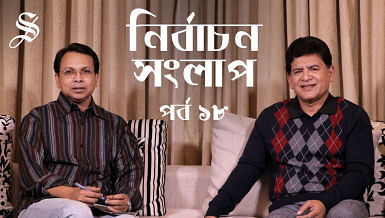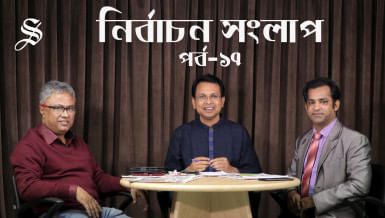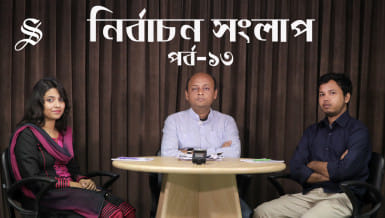Major international media outlets closely watching the national election yesterday highlighted the deployment of troops and members of other security forces, and mounting tension and concerns over transparency.
Several of them in their reports predicted that Sheikh Hasina and the Awami League would win by a wide margin.
They reported that Bangladesh had performed well on most human development index indicators by controlling its population growth and drastically reducing infant mortality rate. These caused higher life expectancy, which is at 72 years, surpassing that of India and Pakistan.
CNN in its report headlined “Tensions mount as Bangladesh gears up for general election” said Bangladeshis vote today on whether to give Prime Minister Sheikh Hasina a record third consecutive term in an election marred by allegations of human rights abuses by her government.
The CNN specifically highlighted three issues -- concerns over transparency, clampdown on free speech, and weak opposition. Human rights groups and opposition figures have warned that the election could be rigged despite promises of transparency from the authorities, it said.
The Awami League has been in power since 2009 and won the last election in January 2014 with a resounding majority amid a boycott. But Hasina has since been accused of authoritarianism and harassment of the media and opposition figures, even as she presides over strong economic growth, read the CNN report.
“Opposition figures aren't the only ones feeling the pressure. Media and press freedom groups have complained of harassment and threats ahead of Sunday's election.”
The CNN report said Hasina was widely expected to cruise to a third term, with her biggest rival, BNP chief and former prime minister Khaleda Zia, currently in prison and banned from running for election over corruption charges.
The Wall Street Journal published an opinion article Friday titled “Bangladesh's Bad Election Choice; The governing Awami League has delivered economic progress but not democracy. The opposition has problems of its own.”
The piece by Sadanand Dhume said, “When it comes to Bangladesh's national elections Sunday, the ruling party and the opposition agree on one thing: the stakes are high. For Prime Minister Sheikh Hasina's Awami League, seeking a third consecutive term, the vote is a referendum on peace and progress. For the opposition, it's the last chance for the world's eighth-most-populous nation to avert one-party authoritarian rule.”
Press Trust of India (PTI) reported that Bangladesh stepped up security with thousands of army troops patrolling the streets along with paramilitary forces and police as Hasina seeks a record fourth term.
Hasina yesterday expressed fear that the opposition could boycott polls in the middle of voting as part of a "political trick" to evade a "humiliating defeat".
"I want to caution all about the character of (main opposition) BNP... they may say in the middle (of the elections) that we are boycotting the polls," she said. "In that case (opposition boycott) I will ask our candidates and other contenders to continue polls until the voting is ended," Hasina said, reads the PTI report.
The Telegraph of UK ran a report yesterday with the headline “'I felt something hit my eyes and then it went dark': Opposition campaigner loses sight in crackdown for Bangladesh election.”
The report started with an emotional interview of opposition activist Marina Begum. Her role in the campaign ended prematurely in mid-December when pellets allegedly fired during an opposition rally ripped into her face and stole her eyesight.
It said the government had promised the vote would be free and fair, but the Jatiya Oikyafront has warned that it might be rigged, accusing the authorities of arresting thousands of its followers and Awami League supporters of launching violent attacks aimed at crushing their campaign - with about a dozen killed and many more walking away with life-changing injuries.
The United Nations, US and the UK have led the charge in calling for an “inclusive and transparent” polls, condemning reports of unrest and the arrest of opposition supporters.
Aljazeera in a report carrying the headline “Ten years of Sheikh Hasina: 'Development minus democracy'” reported that the ruling Awami League has been hard-selling development to millions of voters ahead of the polls.
It said since Hasina took power in 2008, Bangladesh's per capita income has seen a three-fold increase. The country's GDP stood at $250bn in 2017, according to the IMF, and last year clocked a growth rate of 7.28 percent.
The garment industry has emerged as one of the main pillars of the economy, providing jobs to 4.5 million people. It makes up 14 percent of the GDP and nearly 80 percent of the country's exports worth $35bn. Nearly 2.5 million Bangladeshi expatriates send home about $15bn annually in remittance, the Aljazeera report.


 For all latest news, follow The Daily Star's Google News channel.
For all latest news, follow The Daily Star's Google News channel. 


Leave your comments